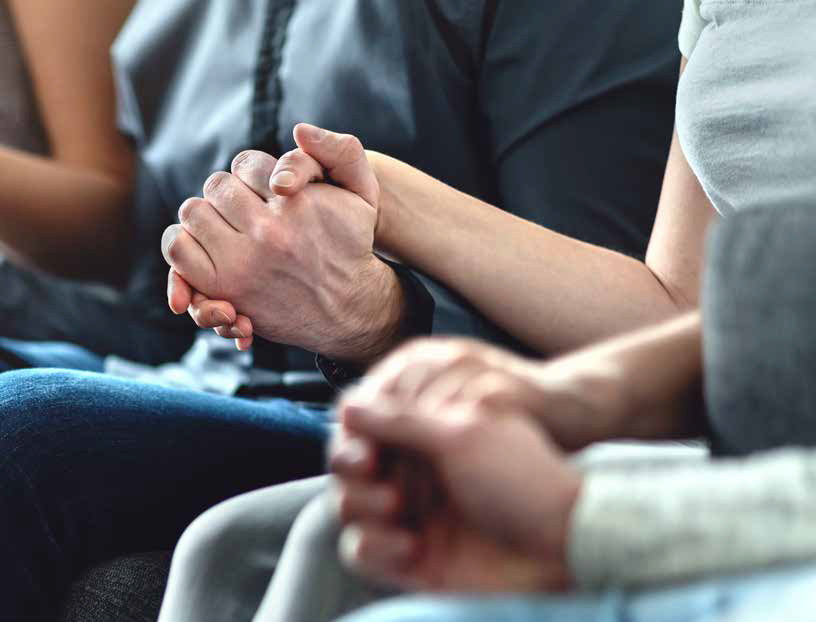by Libby Howe
Should all Christian leaders be awesome pray-ers? What makes for an “awesome pray-er” anyway? Who gets to say?
Praying aloud with others is not for everyone, just as preaching a sermon or teaching a Sunday school class is not something everyone is called to do. God provides some of us the willingness and abilities to pray aloud on behalf of the body of Christ. But it is neither a measure of your fitness as a Christian, nor an extra jewel for your heavenly crown. We can lessen anxiety for people asked to pray. Some people do it. Others do not. (See 1 Corinthians 12.)
IN GOOD COMPANY
Calling on someone to pray aloud for a group, particularly without warning, can cause them to experience a red-hot flush of anxiety. My mother had terrible memories of being called on in school and not knowing the right answer. Because of this, despite her love for her church and her willingness to serve, my mother avoided Bible studies and altar guild meetings for years, simply out of fear that she might be called on to pray. Having to give a public prayer, on the spot, without warning—and sometimes even with warning—jets many people to this reptilian, fight-or-flight response. They would rather be anywhere else other than in this group where they must pray aloud.
Yes, this is about fear of public speaking—on steroids. And it’s not just the anxiety of feeling oneself watched and judged by other humans. Leading prayer adds the Almighty into the equation. Faithful people earnestly desire their prayers to be acceptable in God’s sight. Equal to that desire is the awareness that we are sinful and we often fall short of pleasing God. We are ever aware of our imperfections. Yet the moment of prayer means naming aloud the fact that God is in the room and acknowledging that there is always One present who “outgoods” us. Even Jesus, when a man called him “Good Teacher,” responded: “Why do you call me good? No one is good but God alone” (Mark 10:18).
My friend Erin says this about praying aloud in front of others, “If you feel awkward, you’ve got a lot of company! No one will be judging you.” On the first count, she is right: We absolutely do have a lot of company. Moses comes to mind. When God called him to be the conduit between God and the Hebrew people on their journey out of slavery in Egypt, Moses told God how bad of an idea that was. Moses even said that he couldn’t do it—and that there were others much better suited for it, like his brother, Aaron.
THE PROBLEM AND THE POWER OF LEADING PRAYER
Even if we’re asked to just say a “small prayer” at the beginning or end of a meeting or a meal, deep down we know there’s no such thing as a “small prayer.” Prayer is deeply consequential. It’s not something we approach casually. It’s also not something that serves as a sort of divine rubber stamp for starting or ending church committee meetings. Communicating with God, in the presence of and on behalf of others, is never a small thing.
I’m a pastor, someone who is often called on, without warning, to pray for groups. Shouldn’t I always love it and feel comfortable with it? I don’t think so. I hope to always have a little holy trepidation when it comes to prayer. Prayer matters. Prayer is holy work. And so are the awkwardness and anxiety that often accompany it.
About my friend Erin’s second assertion, that “no one will be judging you,” I disagree. We critique ourselves and others frequently about all kinds of things. There is no magic force field around times of public prayer to insulate us from our own or others’ judgments. Regrettably, many of us, instead of immersing ourselves in the prayerfulness of the moment, have caught ourselves critically evaluating the prayer and the pray-er. Even concluding that a prayer is beautiful puts us in a position of judgment, which sometimes can be rooted in our own insecurities or in our relief that they were called on to pray, instead of us.
For this reason, I believe that the problem of praying aloud in front of others is less about knowing how to pray and more about being able to function amid judgment by God (or so we may think), ourselves, and others. So praying aloud in front of others becomes an act of faith and courage. The courage comes in essentially saying, “Other people’s judgment does not ultimately define me. While judgment may or may not be real and present, there is a larger Truth. Even as my knees are knocking, even as my shaky words leave my mouth, God is here to carry me through this morass of frailty and judgment. God’s love always triumphs here.”
And not only does God’s love triumph; God wants to connect with each of us intimately and personally. God is always ready to listen and encourage. God loves it when we call, when we say thank you, when we listen, when we ask for guidance, and when we notice and name the sorrows and needs of the world around us. God hears us when we express righteous outrage over injustice, when we appreciate the beauty of creation, when we revel in the gift of human community, and when we let ourselves bask in how precious and loved we truly are. At the heart of prayer is God’s love.
The Rev. Elizabeth “Libby” Howe is assistant to the bishop and director of evangelical mission at the La Crosse (Wisconsin) Area Synod of the ELCA.
This article is excerpted from the June 2021 issue of Gather magazine. To read more like it, subscribe to Gather.


